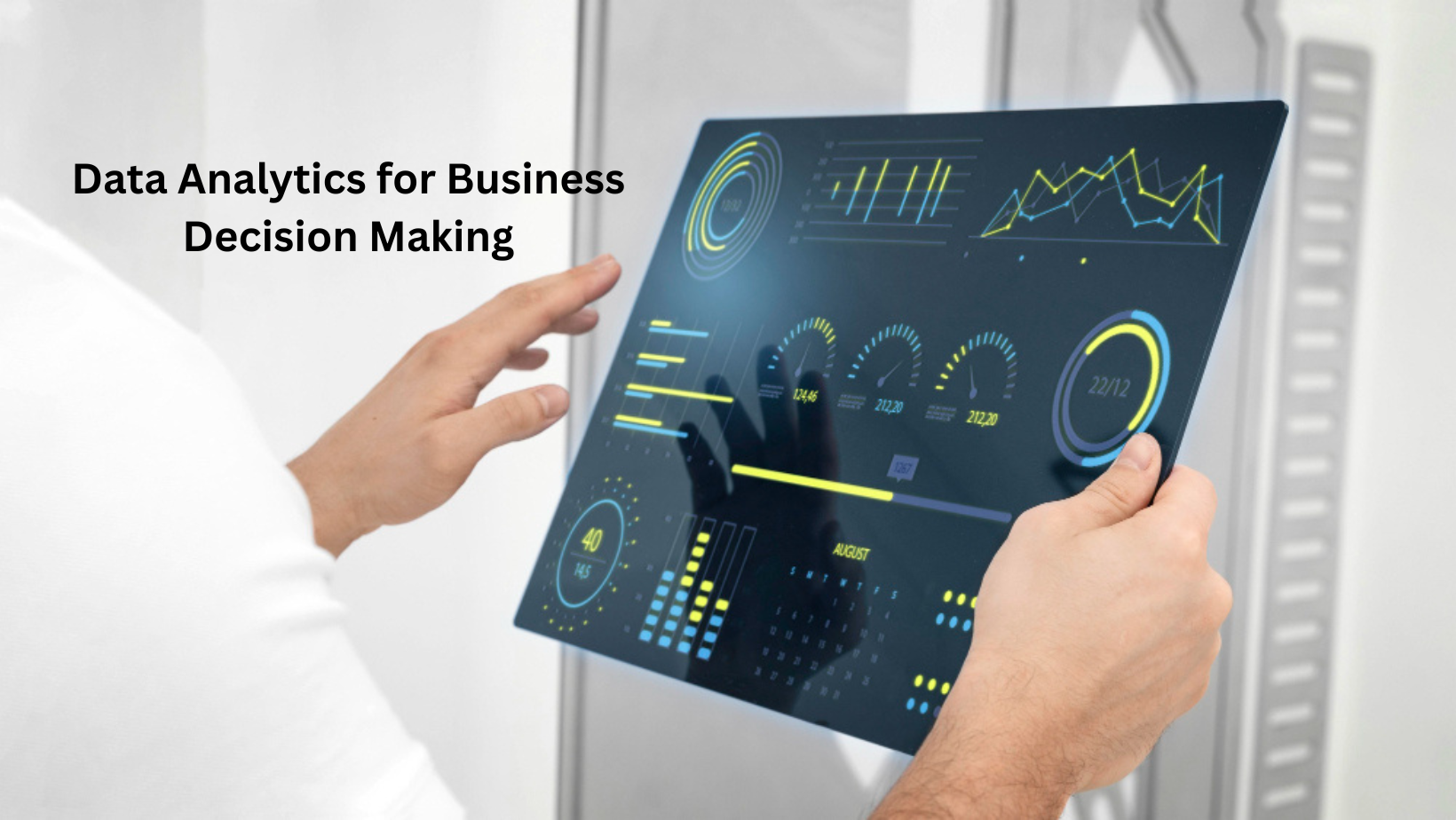In today’s fast-paced, data-driven world, business success depends on how effectively data can be used to make informed decisions. Data analytics plays a crucial role in this, providing businesses with valuable insights that drive growth, efficiency, and profitability. Whether for small startups or large enterprises, using data analytics can lead to smarter decisions, improved customer experiences, and streamlined operations.
This article explores the significance of data analytics in business decision-making, the different types, key benefits, and steps to implementing data-driven strategies.
Understanding Data Analytics
Data analytics involves collecting, organizing, and interpreting data to uncover trends, patterns, and insights. These insights help businesses understand past performance, predict future outcomes, and optimize decision-making processes. From statistical analysis to predictive modeling and machine learning, data analytics transforms raw data into actionable information for guiding strategic business decisions.
Whether identifying customer preferences, optimizing supply chains, or determining market trends, data analytics forms a solid foundation for more effective business strategies.
Types of Data Analytics
Businesses typically use four primary types of data analytics:
- Descriptive Analytics: This type focuses on analyzing historical data to understand what has already happened. It presents insights through reports, charts, and dashboards, enabling businesses to assess their past performance.
- Diagnostic Analytics: While descriptive analytics explains what happened, diagnostic analytics digs deeper to understand why it happened. This approach helps uncover the causes behind trends or anomalies in business data.
- Predictive Analytics: Using historical data, predictive analytics forecasts future outcomes by identifying trends and patterns. It’s commonly used in sales forecasting, risk management, and customer behavior prediction.
- Prescriptive Analytics: This advanced form of data analytics not only predicts future outcomes but also recommends specific actions to optimize results. By analyzing various scenarios, prescriptive analytics helps organizations make well-informed decisions.
Benefits of Data Analytics in Business Decision-Making
Data analytics provides a wealth of benefits for businesses seeking to make more informed and strategic decisions. Some of the key advantages include:
- Enhanced Decision-Making: With accurate insights derived from data, businesses can base decisions on facts rather than assumptions, reducing risks and improving outcomes.
- Improved Customer Experience: Data analytics enables businesses to understand customer behavior and preferences, helping them personalize services and products, thereby enhancing customer satisfaction.
- Operational Efficiency: By analyzing internal processes, businesses can identify areas for improvement, optimize resource use, and streamline operations to achieve cost savings.
- Risk Mitigation: Businesses can analyze data to anticipate potential risks and implement preventative measures before problems escalate, protecting operations from unforeseen challenges.
- Competitive Edge: Leveraging data analytics can provide businesses with a clear advantage in an increasingly competitive market. Companies that harness data insights are better equipped to respond to market changes and seize emerging opportunities.
Steps to Implementing Data Analytics in Business Decision-Making
Here’s how businesses can effectively integrate data analytics into their decision-making processes:
- Define Clear Objectives: The first step is identifying the specific business problems or opportunities that data analytics can address. Whether it’s improving customer retention, increasing sales, or optimizing supply chains, clear objectives will guide the data analysis process.
- Data Collection and Organization: Gather relevant data from multiple sources, such as customer interactions, sales reports, and market trends. Organize this data systematically for easier access and analysis.
- Select Appropriate Tools: Businesses need the right data analytics tools based on their objectives and the complexity of the data. Tools range from simple spreadsheets to advanced AI-driven platforms.
- Data Analysis: Once data is collected and organized, various analysis techniques such as statistical analysis, predictive modeling, and data visualization should be applied to extract meaningful insights.
- Implement and Monitor: Use the insights gained to make informed decisions. Continuous monitoring ensures the effectiveness of data-driven strategies and allows businesses to refine their approaches as needed.
Real-World Applications of Data Analytics
Data analytics has become essential across industries:
- Retail: Retailers utilize data analytics to track consumer behavior, optimize inventory, and enhance customer engagement with personalized marketing.
- Healthcare: Data analytics improves patient care and hospital operations by enabling healthcare providers to predict outcomes and tailor treatments based on patient data.
- Finance: Financial institutions use analytics to detect fraud, manage risk, and enhance customer service by analyzing transaction data and spotting suspicious activity.
Conclusion
In today’s business landscape, data analytics is no longer an optional tool but a crucial driver of success. Whether through descriptive, diagnostic, predictive, or prescriptive analytics, businesses that embrace data-driven strategies stand to gain significant advantages. With the growing demand for data expertise, many professionals are seeking to build their skills through various Data Analytics course in Delhi, Noida, Lucknow, Nagpur, and other cities in India, preparing themselves to navigate the complex world of data and decision-making.
Data is the key to unlocking smarter, more strategic decisions that lead to sustained business success.




